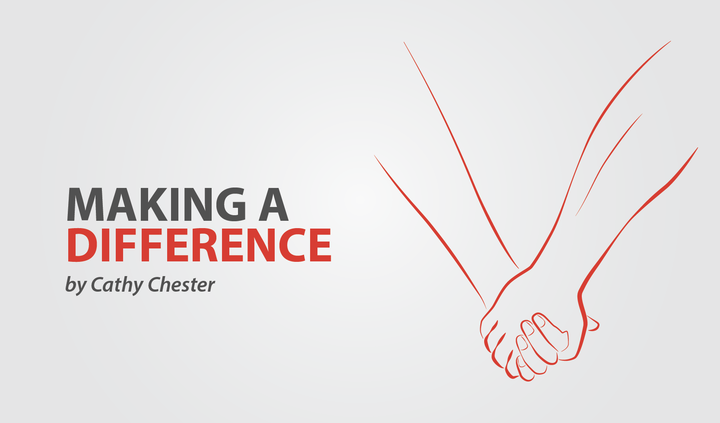Integrative Medicine for MS: an Interview with Dr. Bowling
Written by |


When you live with multiple sclerosis you search for ways to manage your disease. You turn to doctors who inevitably prescribe one of the many FDA-approved medications, but sometimes that’s not enough. To complete the picture of seeking better health, you need to also look outside the box of traditional medicine. That’s where integrative medicine comes in.
According to Duke Integrative Medicine, here are the principles of integrative medicine:
- “The patient and practitioner are partners in the healing process.
- All factors that influence health, wellness, and disease are taken into consideration, including body, mind, spirit, and community.
- Providers use all healing sciences to facilitate the body’s innate healing response.
- Effective interventions that are natural and less invasive are used whenever possible.
- Good medicine is based in good science. It is inquiry-driven and open to new paradigms.
- Alongside the concept of treatment, the broader concepts of health promotion and the prevention of illness are paramount.
- The care is personalized to best address the individual’s unique conditions, needs, and circumstances. Practitioners of integrative medicine exemplify its principles and commit themselves to self-exploration and self-development.”
Sometime after my 1986 diagnosis, I began hearing about a doctor who was not only an internationally renowned neurologist and MS specialist, but also a leading authority on complementary and alternative medicine (CAM) for MS patients. I was intrigued, so I went to the library to learn more about this fascinating and new (to me) branch of medicine, and also the doctor I was hearing so much about.
His name is Dr. Allen Bowling, and the Colorado-based doctor is spreading the word about CAM for the MS community. His newest book, “Optimal Health with Multiple Sclerosis: A Guide to Integrating Lifestyle, Alternative, and Conventional Medicine,” is based on his decades of research, writing, and caring about the MS community. I use it as a guide for healthy living.
At the 2016 Consortium of Multiple Sclerosis Center’s annual meeting, I attended a symposium focusing on lifestyle factors where Dr. Bowling presented his topic, “Expanding the MS Toolkit: Integrating Lifestyle Factors and Unconventional Medicine Into MS Clinical Care.”
I was fortunate to interview Dr. Bowling as well. If you’re looking for a path to harmony between your mind, body, and spirit, read on. Dr. Bowling can help you find the way:
How did you first become interested in integrative medicine? When did you decide to share your interest with the MS community?
Dr. Allen Bowling: I first became interested in integrative medicine when I went into practice 20 years ago and realized that most of my patients were interested in this type of approach, yet I had received no education and training in this approach. Once I collected a small amount of evidence-based information in this area (a few months of work 20 years ago), I began writing and speaking on the topic. I also began to incorporate it into my clinical practice.
What was the first concept that caught your eye to learn more about integrative medicine?
AB: What caught my eye about this approach (and was actually quite shocking!) is that this approach actually leads to a higher quality of care, but it is not the standard of care. It provides a higher quality of care because it includes conventional medicine, addresses lifestyle factors that may prevent many diseases, and may be beneficial for MS and many other conditions, and provides evidence-based information about “alternative” approaches.
Were you influenced by anyone’s work in integrative medicine to help you make the decision to go in that direction?
AB: Early in my work, there were very few professionals who were truly using an evidence-based approach in this area — most of the information that was available was excessively negative or positive, and did not include much evidence. In the 1990s, I was influenced by the work of Dr. Edzard Ernst in the United Kingdom. My patients generally did not find either of these extreme, non-evidence-based approaches helpful — they wanted the “real deal” information without spin and without sugar-coating.
How do you explain integrative medicine to patients and why they’d benefit from incorporating it into their own lives?
AB: I explain to patients that there is evidence that conventional MS medications have benefit for modifying MS disease course and treating MS symptoms, but there is also evidence that exercise, diet, emotional health, tobacco use, alcohol, and other medical conditions have important effects on MS and general health and therefore must be incorporated into the treatment plan.
In your experience does any one “type” of MS benefit more from integrative medicine than another?
AB: I think all types of MS may benefit from this approach. In the specific case of progressive MS, for which many feel the treatment options are limited, I would argue that there are many therapies, especially integrative, that are available and should be used.
What has been the biggest game-changer in the way patients view integrative medicine?
AB: I think the biggest game-changer is that people with MS and professionals are more open to this approach, and also that more and more evidence is available to support the use of these approaches in a safe and effective manner.
What diet(s) do you suggest for the MS community?
AB: I doubt there will ever be one best diet for MS — I think we may find one diet that’s the worst for MS… the standard American diet. For diet, I recommend:
A generally healthy diet — in keeping with Michael Pollan’s quotation, “Eat food. Not too much. Mostly plants.” Specific diets that are consistent with this include DASH, MIND, TLC, Weight Watchers, and vegetarian.
- Consider Vitamin D and B12 supplements if blood levels of these nutrients are low.
- Avoid or cautiously use most supplements — there are more than 200 supplements that raise concern for people with MS.
- Limit calorie intake so as to maintain a healthy body weight.
How much exercise do you recommend to patients?
AB: For exercise, I also think that it is unlikely we will ever find the one best program for people with MS. What I recommend is a personalized program that is enjoyable and generally has these features:
- Three-four sessions per week with each session lasting 30-60 minutes;
- 2:1 ratio of aerobic exercise to conditioning;
- Balance, stretching, and some type of relaxation during or at the end of exercise is fun!
For people with any type of disability, the exercise program should be put together in conjunction with a physical therapist.
Please explain your integrative model in MS and the new paradigm in MS care.
AB: The new paradigm of care that I discuss is this integrative model applied to MS. I discuss it in detail in my recent book, Optimal Health with MS. This approach utilizes conventional medicine as well as unconventional medicine and lifestyle approaches to treat MS, but also to treat other medical conditions and maintain whole body health.
This approach has seven steps:
- Disease-modifying medication;
- Symptomatic treatment — with conventional, unconventional, and lifestyle medicine;
- Exercise;
- Diet;
- Personal and social well-being;
- Tobacco and alcohol use;
- Treatment and prevention of other medical conditions.
What are your thoughts on medical marijuana for MS patients?
AB: I think marijuana use needs to be thought through carefully for people with MS. As with any drug, one should weigh the risks and benefits of marijuana. There are multiple studies in MS that show that marijuana products may improve pain and one’s sense of muscle stiffness (spasticity). Unfortunately, the products that have been used in these studies are not available in the U.S. — this leads to a challenge with relating these studies to day-to-day practice with products that are available in the U.S. Marijuana may interact with prescription medications and has possible adverse effects, such as addiction, motor vehicle accidents, dizziness, impaired balance.
Please tell us what you’re currently working on.
AB: My current focus is on how to truly use an integrative approach in day-to-day clinical care for those with MS. That is a large and complex task. As a clinician, this requires a true “mind shift” and a significant fund of knowledge and clinical experience. There is also a logistical challenge to provide this type of care within the confines of the U.S. healthcare system.
***
Note: Multiple Sclerosis News Today is strictly a news and information website about the disease. It does not provide medical advice, diagnosis, or treatment. This content is not intended to be a substitute for professional medical advice, diagnosis, or treatment. Always seek the advice of your physician or other qualified health provider with any questions you may have regarding a medical condition. Never disregard professional medical advice or delay in seeking it because of something you have read on this website. The opinions expressed in this column are not those of Multiple Sclerosis News Today or its parent company, Bionews Services, and are intended to spark discussion about issues pertaining to multiple sclerosis.



ABELARDO GARCIA
CONGRATULATIONS TO THE EDITOR OF THIS INFORMATION.
I thank you for your interesting information. Your information is not for me, thanks God, but I pass it to two friends suffering the MS. One is 62 in wheelchair and the other is 46 y. o., still walking although he get tired very soon.
I should like to know if you have any news in Spanish, as for my friends, should be good, as they dont speak English.
Thanks again and wishing you all the best
Abelardo